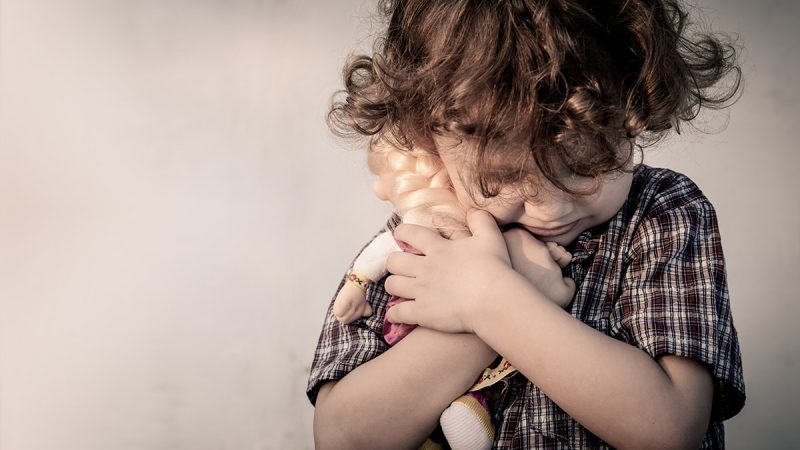
Stereotypes: breaking the rules – a Q&A with Rebecca Asher
As our new Let Toys Be Toys – Parenting Science Gang gets started on their mission to explore gender stereotyping in childhood, we were excited to welcome Rebecca Asher, author of Man Up: Boys, Men and Breaking the Male Rule, for a Q&A.
Rebecca: Hello – I’m really pleased to be part of this Q & A and am looking forward to the discussion.
I thought I’d get things going by explaining a little bit about why I became interested in gender stereotypes and their influence on children. I touched on this area slightly in my first book, Shattered, which is about modern motherhood. It was very noticeable how large stereotypes about what made a good mother or good father loom in parents’ lives and influence their own choices about work, family and childrearing.
My second book Man Up then looked at gender stereotypes more closely and how they influence children, particularly boys and the gendered, masculine behaviour they pick up from family, friends and school. I think it’s completely fascinating area and there are some great books and studies out there about it.
One of the most eye-opening things I realised as I wrote was how parents unconsciously treat boys and girls differently – and I’m as guilty of that as anyone!
What are the biggest influences that gender stereotypes have on children? I watched No More Boys and Girls: Can Our Kids Go Gender Free? on BBC TV recently and it fascinated me that gender stereotyping can have an effect on how children are able to communicate especially with regards to feelings. I was shocked and surprised at how much of a difference the gender-neutral classroom made by the end of the experiment!
Rebecca: Rather shamefully I haven’t yet seen that BBC series but I know lots of people who did so have heard a great deal about it second hand! They may have dealt with it in the programme but one of the biggest – and saddest – influences I came across (with respect to boys particularly) was the influence of gender stereotypes on their ability to express their feelings.
Essentially, boys are not encouraged to talk about their feelings at all – parents don’t really talk to boys about their feelings – with the one exception of anger. So, we encourage boys to express anger, but not to express sorry, or love, or happiness, or regret. I find that deeply shocking and saddening!
PSG A: That is exactly what happened – the boys couldn’t describe any other feelings than anger. Girls could list something like 20 different emotions. What also struck me was how one girl described herself as ugly at the start of the experiment and unique by the end of it. Totally bonkers and really eye opening!
For those of us who haven’t read your book yet (I’ll get there when I have more than uninterrupted 5 minutes reading time!) – can you tell us a bit more about how parents unconsciously treat boys and girls differently? That’s rather alarming!
Rebecca: Yes, the unconsciously different treatment of boys and girls is completely fascinating AND alarming. It was certainly a wake-up call to me. So for example studies have shown that parents will unconsciously guide their children to what they deem to be ‘appropriate’ toys for their sex by a gesture, touch, the tone of their voice – all either signalling approval or disapproval about the toy choices children are making (in a room full of a variety of toys). Studies have also found that fathers are particularly prone to intervene in these unconscious ways with their sons.
Why do you think it’s so hard for people to accept a boy can wear pink skirts? I feel like this is kind of a symbolic barrier that if we can make this mental leap happen, our boys will be better off, and everyone will benefit
Rebecca: I completely agree! One of the reasons that I was drawn to write a book about boys and masculinity is because I think if we can tackle that and break the ‘rules’ around how boys supposedly should behave that we would unlock so much. Boys would be more free and so would girls (and women) as a result.
PSG D: Glad we agree! I think that every time my boy wears said clothes we battle the world around us.
PSG E: I agree completely with this. What’s better for boys is better for girls and vice-versa.
Rebecca: There’s a brilliant Margaret Mead quote: “Every time we liberate a woman, we liberate a man.” That’s true – and so it is the other way too.
I’ve read that people unconsciously treat baby boys and baby girls differently, pretty much from birth. But do we know anything about how early that starts affecting the child? I mean, when do they start behaving differently due to how they have been treated? Or is that unknowable?
Rebecca: I’m not sure about when it kicks in exactly (although there are bound to be studies that give some indication). What I do know is that by the time children are in their first and second year of primary school they very much begin to separate off in to girl groups and boy groups, and their sense of themselves and their social standing is very much centred around their social group of the same sex.
PSG G: My 3.5 yr old made a point of saying he only had boys as friends when he started a new pre-school. He meant that he only wanted boys for friends as well. I had to point out that he had 3 good friends who were girls! Obviously at that age it’s dependent on parents and they are children of my friends, but he was playing with them at nursery too!
Rebecca: That rings very true. Boys’ social standing quickly becomes tied up with their acceptance within a circle of male friends and their place in the hierarchy within that group. Having girls as friends is penalised. It’s pretty brutal!
PSG G: I think it was influences from older children at the nursery setting as they were also with older children quite often
PSG E: Because by then boys already discount girls.
PSG F: Are girls also penalised for having friends who are boys? Or is it one-way?
Rebecca: This is the interesting thing: there’s a far greater social penalty for boys playing with girls because *of course* what sort of boy would play with girls?! So it’s very much tied up with the higher regard in which boys are held too. If we think about the terms ‘tom boy’ and ‘sissy’, arguable ‘sissy’ is much more damning.
Apologies for yet another quote but there’s a great quote in The Cement Garden by Ian McEwan in which Julie, one of the characters, says to her brother: ‘You think it’s humiliating to look like a girl, because you think it’s humiliating to be a girl…Girls can wear jeans and cut their hair short and wear shirts and boots because it’s okay to be a boy; for girls it’s like promotion. But for a boy to look like a girl is degrading, according to you, because secretly you believe that being a girl is degrading.’
PSG G: Iggy Pop ” I’m not ashamed to dress “like a woman” because I don’t think it’s shameful to be a woman.” 😀
PSG E: My just-just-3 year old, who is at nursery, asked to hold Daddy’s hand instead of mine as we were walking yesterday because “Daddy is a boy, and boys like dinosaurs”. Not sure if I was imagining it but I swear I could hear disparagement in his voice.
To which I should add: Daddy and I like dinosaurs the same amount and I’m the engineer so really he should stick with me ?
Rebecca: I would highly recommend the book When Boys Become Boys by Judy Chu. It’s a detailed and eye-opening account of the socialisation process that boys go through as they transition from nursery to school.
PSG E: Thanks for this. Until I had my son I truly thought equality was a female issue. Boy was I wrong.
You must have worked your way through so much research while writing the book. Was there any that really stood out for you as surprising?
Rebecca: Well, the extent of our unconscious interventions as parents was surprising and shocking to me, and also the very long lasting and deep effect of this early gendered socialisation: it absolutely embeds itself in children and defines the way in which they measure their self worth and how they see themselves in the world across their life time. That’s why more enlightened approaches at school etc are so important – so that you are tackling this at source.
I had a tour of a primary school last week and the Deputy Head asked what kind of a child our son was – creative etc.
We said that he’s always making things, constructing, drawing, and very good at the letter E currently as that’s his initial. She said “Oh well it’s unusual for a boy to even hold a pencil so you/he are doing very well!” I’m paraphrasing…. but I was gobsmacked!
How do I raise the issue with evidence to schools so that they start to change their stereotypes?
Rebecca: It’s fair to say that many schools could be doing a lot more to combat stereotypes, from comments like that which I hear about all the time, to really outmoded practices such as getting boys and girls to line up separately in the hall or playground. There’s research to show that even dividing boys and girls up in that way perpetuates stereotypes, never mind the activities that you then might set for the boys and girls once they are separated.
PSG C: Seriously, schools still do that?!!!!!!!
PSG G: Yes – I’ve heard of things like book bags for boys and girls in different boxes because there are too many for one box. It’s easy to choose another way to categorise with a little thought
PSG J: My daughter says girls line up one side, boys the other. She’s in reception.
PSG H: Yes, I work in a lot of schools. It’s very common. They also compete a lot girls vs boys. Eg. Who’s sitting the nicest? Who’s bag box is the tidiest? etc.
PSG I: What about in environments where schooling is single-sex? Have you seen any difference in approach, or in outcomes when the classroom is limited that way?
PSG G: Oo – interesting. I looked at private school for my son, but would not consider single sex. However, tbh, if I had a girl then I don’t think I’d have been bothered.
Rebecca: Single sex schools are interesting – I’ve visited single sex boys’ schools where the atmosphere is very macho and that seems to be heightened by the fact that it is single sex. But I’ve also been to single sex schools where boys say that it’s easier to be who they want to be in those environments as they are not seen in opposition to girls the whole time.
I guess it depends on the individual school, although I’d also say that as a preparation for the ‘real world’ interacting on a daily basis with the opposite sex has to be a good thing. But that’s opinion not research!
PSG H: What are your thoughts on gender neutral classrooms? There’s been some uproar about the suggestion that teachers should stop saying girls and boys for example.
PSG A: I personally think a lot of the uproar has come through misunderstanding though, I know that when I posted about the gender-neutral classroom series, a lot of my friends and family started throwing stuff about being transgender and gender fluid into the mix, when it’s not as complicated as that. It took a bit of explaining for them to understand what was meant and why it was important.
Hi, do you know of research into all of this over time? I’m particularly interested because often in conversation people use examples from their own childhood (I don’t have that many friends with kids at school yet). It’s frustrating that they chose anecdotal examples that I can’t rebuff & it makes moving conversations forward a bit tricky.
Rebecca: Let Toys Be Toys themselves cite research that gendered toy choices for children go on to influence the type of career choices that children make in later life.
On a more positive note, it’s now possible in Scandinavia to track the effect over time of fathers taking paternity and spending more time with their children etc. Parents who share the care in this way are more likely to raise children with progressive attitudes who go on to share the care when they themselves have children. This may sound obvious but it goes to show that policy interventions of this kind have a virtuous long-term effect.
School has been mentioned several times. Is there any research into home-schooled children?
Rebecca: I’m afraid that I haven’t come across anything about home-schooled children. I have talked about school a lot but it’s important to say that, in the early years (primary) at least, parents have as big an impact, in fact probably more so, than schools.
What I find interesting about the entry into school is that it’s a gender triple whammy – schools reinforce stereotypes often, as do other children in school (who police each other’s behaviour), and parents (even parents who would think of themselves as progressive) all too easily fall in with these stereotypes as their greatest fear is that their child won’t fit: and that overrides any concerns about stereotypes.
I don’t say this to criticise at all – and I’m guilty of it myself – but it’s an interesting phenomenon.
At what age does environment start to produce these effects – you mentioned the transition from nursery to school; my twin girls are only 13 months but I’ve already heard mums in my NCT group saying things to their sons like “Be careful with the girls”. I’ve got a houseful of brightly colored toys, but not sure if I’d be rougher with them if they were boys.
Rebecca: Boys do tend to be treated more roughly by their parents and are punished more etc. It absolutely starts from day one as you suggest (or even before a child is born, when we take into account how parents to be talk about their yet to be born sons and daughters).
“Boys will be boys” No! Just children!!
There is no difference other than social conditioning before puberty is there?
Rebecca: What was clear from the research that I looked at is that the commonalities far outweigh the differences and the more we go on about the differences they greater they become. There’s a good book by Lise Elliot called Pink Brain, Blue Brain: How Small Differences Grow Into Troublesome Gaps – which says it all really
If our biases are unconscious and affecting the way we treat our children earlier than we think, is it possible those biases could be affecting some of the research already out there?
Thinking of different books and articles, I’ve read about Carol Dweck’s research on praise in classrooms. And also Steve Biddulph’s books (I’ve only read Raising Girls, though … because that was the one relevant to me at the time, before I gave up on reading parenting books almost completely).
Rebecca: Yes we absolutely have to accept that researchers and writers come to their research with their own biases – but everyone is convinced that they themselves are objective and influenced only by the facts!
If you are up for a long and detailed read I’d say the most objective survey of the research out there on gender is Gender Development by Blakemore et al (Psychology Press).
Obviously, there are some people who just think boys and girls are born fundamentally different, and ignore (or don’t believe in) all the social conditioning that goes on. What do you think is the killer piece of evidence for those people, and what evidence do you think we are missing?
Rebecca: I’d say to those people to look at the differences internationally: in some countries girls outstrip boys at maths, in others fathers do as much childcare as mothers (or almost as much). The idea that our interests and aptitudes are fixed from birth is quashed if you look at international comparisons and also trends across time. Even in the UK men play a far greater role at home than they used to.
I try really hard at home to avoid stereotypes with my sons (am not perfect, but I try!). My eldest is in year 1 now and I find all my careful efforts smashed to smithereens when he comes out with comments from school such as “girls are rubbish because they can’t run as fast as boys, that means boys are the strongest and the best!”. I challenge these as and when they come up, but I struggle with a) not coming across as overly defensive (cos I certainly feel defensive with some of the stuff he’s parroting!) And b) wondering if that’s the right thing to do and whether I could be doing more/doing it differently.
So I guess my question is, what’s the best way to try to undo or limit the damage done by influences that you can’t control?
Rebecca: I think you are right to challenge it, in a non-aggressive or defensive way (hard I know…). It’s really important that those statements don’t go unquestioned and that children understand that there is another way of seeing things. I think that persistence will pay off. This is just anecdotal but my own son used to come out with lines like that (and still does occasionally of course…), but he also now takes pride in being a ‘gender warrior’ and calling out sexism. He thinks that’s cool. Long may it last!
In what ways can we empower our daughters without resorting to trying to make them be more like boys?! (As you have indicated above)
Rebecca: I think we should empower our girls in the same way that we should (genuinely) empower our boys – by encouraging them to be who they want to be and not to feel penned in by stereotypes.
If you could wave a magic wand and change something, what would you do?
Rebecca: The one thing I’d love to change is to have well paid, ring fenced, long paternity leave for dads. If mums and dads could share the care from the off I think this would set hugely beneficial habits within the household and be a brilliant model for children themselves to follow in later life. It would also open up the emotional lives of men, which is so important and needed.
PSG E: The current maternity/paternity regulations are also one of the few examples of true gender inequity in law and disadvantage women of childbearing age in the workforce.
PSG Q: Shared paternity leave as it stands is NOT sufficient. It is so inflexible, allowing only solid blocks of mum/dad time, where part-time for both is likely to suit many employers better.
Could you please leave the names of the researches that cover the main questions of today’s meeting?
Rebecca: I put together a reading list in a blog that I did for LTBT. You can see it here: http://lettoysbetoys.org.uk/setting-the-children-free-parenting-without-stereotypes/
PSG L: I can’t wait to read your books!
Rebecca: And yes, please do read my books – that would be great!!
Related Links
Passionate about finding out about the effects of gender stereotyping on children?
Why not join Let Toys Be Toys-Parenting Science Gang on Facebook. We are going to find a question that research hasn’t answered yet and do our own study.
Also check out the Let Toys Be Toys website and their twitter feed for much more on the subject.
We’ve been running Q&As for the last 9 months now for several Parenting Science Gangs – why not have a read of some of previous sessions. You can see the whole list here, or maybe start with:
- Language Development in Children with Dr Silke Brandt
- Television and Creativity with Dr Sarah Rose
- What’s in Breastmilk with Dr Natalie Shenker
More from Rebecca Asher at her website rebeccaasher.com


